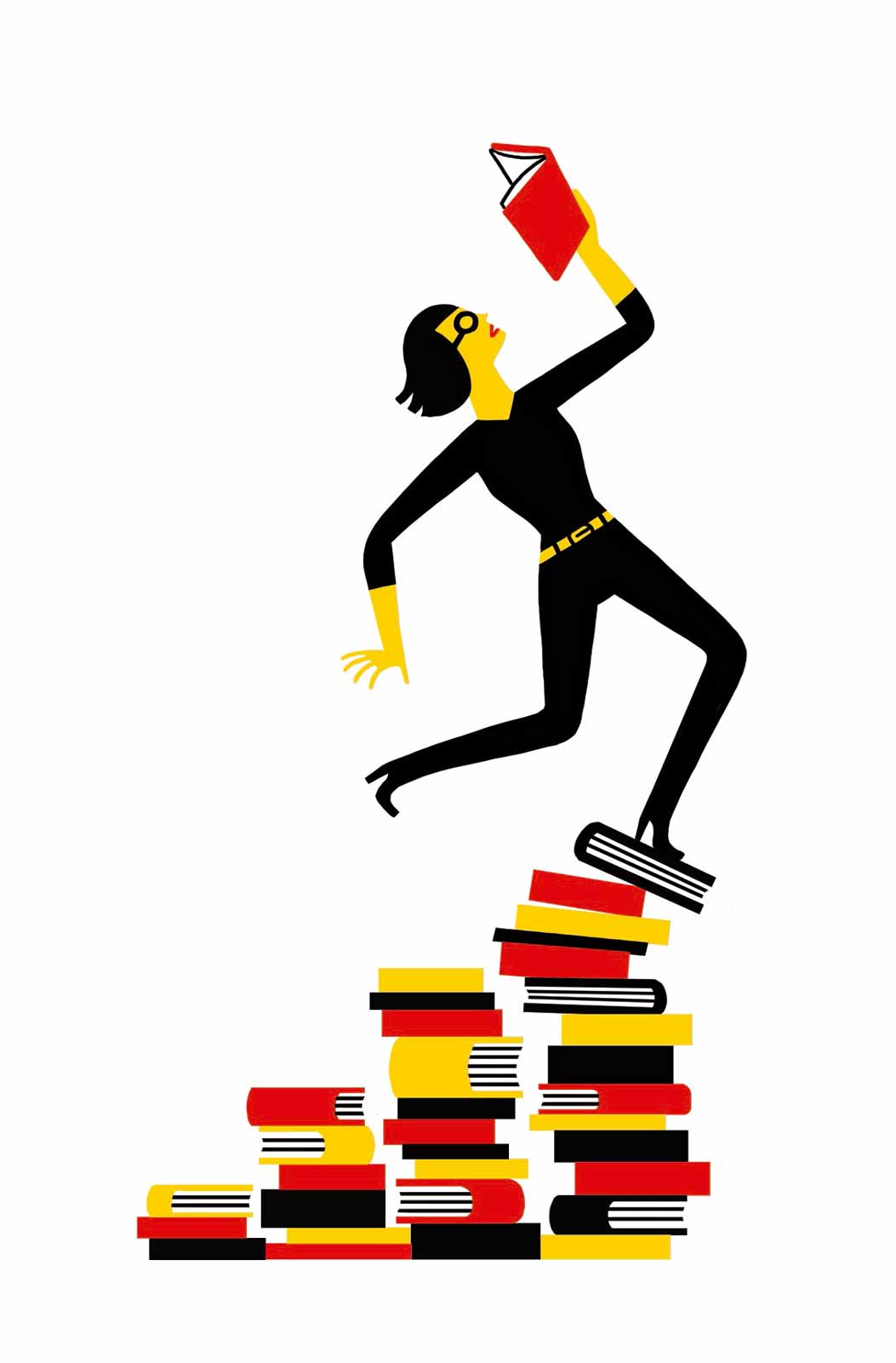
Like most recovering overachievers, I have a complicated relationship with self-help books. That is, I approach the entire genre with a mixture of interest and dread. While I am certain I can become a better version of me with the help of someone who has a research staff and a lucrative book contract, I know my relationship with the self-help book of the moment will end badly. It always does.
Everyone wants to be better at something. Right? Wasn’t this very country founded 238 years ago on the unalienable rights to life, liberty and the pursuit of flat abs? I dare you to name someone who does not want flat abs. And yet they are so difficult to attain, unless you are an Olympic swimmer or under the age of 10.
This is the problem with self-help generally: real change is hard. So while you could fill whole libraries with the books that have been published in an effort to help us all get flat abs, when it comes to said books, there’s no such thing as strength in numbers. There is only strength in crunches, planks and other core exercises you probably wish didn’t exist. But if you are a recovering overachiever, the drive for self-improvement remains so persistent that it creates a selective memory in which all failed attempts at effectively using self-help books–to attain flat abs or to do just about anything else–are magically erased, along with the pain of childbirth and the tragedy (for me and all the other vans in the world) of the Dutch losing the 2010 World Cup final. Which explains why, when Daniel J. Levitin’s The Organized Mind: Thinking Straight in the Age of Information Overload landed on my desk, I thought, Oh goody, something that can help me become a better me at work and at home!
After spending decades in consumer magazines, I can say with certainty that after flat abs, what Americans want most in life is organized closets. And I know, as Levitin does, that you cannot have an organized closet without first having an organized mind. His book is full of amazing tidbits, like the chart that compares the average global temperature with the number of pirates in the world. What does that have to do with organizing? Who knows? Levitin is a professor, and he easily summons up lots of diverting facts to illustrate how distracted we are. For example, he knows that women’s cortisol levels spike when they are confronted with clutter but men’s don’t, which gave me a fantastic idea for my own self-help book: How to Live Happily With a Man Who Doesn’t Notice the Pile of Crapola at the Bottom of the Stairs.
Did Levitin’s book change my life? Well, first I need a leave of absence from work to finish it, as it is 512 pages long. Which brings us to another problem with self-help: those most likely to own self-help books are those least likely to have time for self-help books. Years ago, when my children were small and the working-mother routine felt particularly Sisyphean, my well-meaning husband gave me a book called How to Calm Down. It sat on my night table for six months or so until I realized that what would calm me down most was less time spent awake. I do, however, have an awesome framed photograph of my middle son holding the book and laughing maniacally. So it was good for something.
The one self-help book I have ever been able to get through is Adele Faber and Elaine Mazlish’s How to Talk So Kids Will Listen & Listen So Kids Will Talk, because the margins are very wide and half the book is fill-in-the-blank exercises, so the part you actually have to read is quite short. If you haven’t read it, here’s the key takeaway: when your child comes home and says, “I’m so mad that my math teacher took away my phone when I was texting in class,” you are not supposed to problem-solve or scold or, heaven forbid, call the school. You are just supposed to say, “Wow, it sounds like you’re really mad.” That’s right: parenting as parroting. Weirdly, it totally works, in part because it’s such an easy concept that even time-pressed lunatics can remember it.
As for the rest of the self-help volumes on your night table? Face it: they are dusty markers of inadequacy, reminders of the better you that will never be. They mock you, just like the fancy cookbooks with recipes for things like coq au vin that you will never learn to spell, much less make; the glue gun you absolutely will never use to DIY anything; the set of Rosetta Stone CDs for a language that it turns out you can get by fairly well without. Taken together, these little failures are all quite bad for your self-esteem. And you will certainly never get flatter abs if you don’t take care of your self-esteem problem first.
Van Ogtrop is the editor of Real Simple and author of Just Let Me Lie Down: Necessary Terms for the Half-Insane Working Mom
More Must-Reads From TIME
- The 100 Most Influential People of 2024
- The Revolution of Yulia Navalnaya
- 6 Compliments That Land Every Time
- What's the Deal With the Bitcoin Halving?
- If You're Dating Right Now , You're Brave: Column
- The AI That Could Heal a Divided Internet
- Fallout Is a Brilliant Model for the Future of Video Game Adaptations
- Want Weekly Recs on What to Watch, Read, and More? Sign Up for Worth Your Time
Contact us at letters@time.com